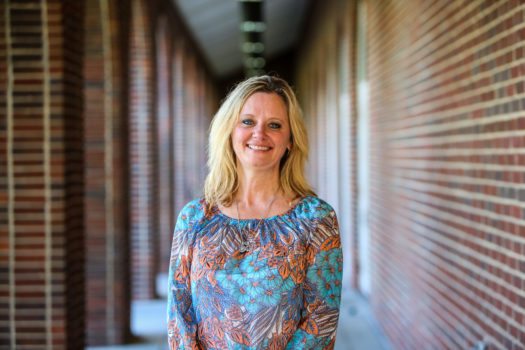The Parent & The Principal: STAY ON THE GROUND

From the desk of Tammy Hayes, Middle School Principal:

It’s that time of the school year where the new has begun to rub off, reality is starting to kick in, and everyone is realizing the level of work it requires. No worries; we mix it up at The Brook Hill School with lots of activities to keep it upbeat, like last weekend’s Warrior Bowl and today’s pep rally, but there is a rhythm to working hard that must come into play. Pun intended.
As principal, I hear a lot from our students. They are quick to exclaim with enthusiasm over their newfound freedom to walk to the cabin and get frappuccinos all by themselves during lunch, or have the student center on Blue days and play a little Foosball. Yet, they also have no qualms in reporting when things do not feel “fair” from the classroom or feelings get hurt from a less than polite peer. I listen and assess their claims with an ear toward what they are feeling and try to discern what warrants further investigation while hopefully leading them to assess their own responsibility to manage conflict; it is the hard work of a principal to do this.
Sometimes situations come across my desk from a parent’s purview of what has happened to or with their child. Realizing this is now second-hand information, there is now another layer to consider. No doubt, there are times when a student needs parental rescue – if not at least some help in problem solving. Sometimes, there is unfairness in a “system of how something is being handled,” not so much in the person of it, and a parent can speak to that effectively.
I do think it wise that we recall adolescence is full of irregularities, most of which flow from emotion rather than fact. In fact, tweens are characterized by believing first what they hear and checking the validity of it never. Students between the ages of 11 and 14 can be easily offended, are quick to whine in order to get out of having to do something hard, and think they know exactly what is right for them in any given scenario. I like to say they are in the process of becoming mature, so in other words, not there yet.
Being also a parent of four children ranging in ages from 16-21, I have my own offspring “representing their struggles” from time to time, and I am tempted to step in and leverage my own influence or authority to get it off the dinner table conversation as quickly as possible. After all, it would be much quicker to just handle it myself. However, experience has taught me that much of the solid learning lies in the struggle, winning some and losing some, sometimes fair, sometimes not so much. Having a student walk through an issue to solve it (as much as a student is able to do) will bring confidence that they will need for future struggle when I am not around. And a day is coming when I will not always be around.
The visual I would like to give you is one of a roller coaster. The middle school years will have ups and downs daily, even hourly. Now close your eyes. Remember when the coaster topped the hill, and you could not see the other side; what a thrill, right? Not really. More like, sheer terror for wimps like me. Now, keep your eyes closed; remember when it was at the very bottom twist, and you could only for a moment feel the ground beneath you, then it jerked so hard you had only grab onto your seat and scream? That is middle school, my dear parents. It is a roller coaster ride for them every day. Your students are learning as much what not to do as they are what to do every day all day long. Sounds exhausting, right? It is-for them and for you.
I have only one piece of advice for you as you learn how to maneuver these next few years of middle school right on into high school.
Stay on the Ground. Do not get on the coaster with them. Your perspective is what they need and will be lost if you climb on their ride.
I submit to you that your decision to rescue them is the enemy to building their confidence in self, but more importantly their confidence in God. If you are always their hero, how will they ever know that they need Him? What they need is your calm, been there, done that, know it will all be okay perspective. They need your coaching and reassurance that they can approach their teacher, friend, whomever, with any and all concerns, even if it is scary to do it. They need our prayer, love, and understanding. They need you on the ground, modeling patience, grabbing them up to hug them and help them catch their breath and celebrate their bravery in having done a hard thing. They need you to pray with them to God who gave them the victory reminding them that they did it with His blessing to get through it and not on their own merit.
It is a tough thing to be the parent (and the principal). It is not for sissies. How is it that you became the confident, strong adult that you are? Most likely, along life’s way, someone modeled strength and confidence for you, then let you fight through some stuff to discover your own confidence in both your ability and in God’s to bring you through it with success.
At The Brook Hill School, We are convinced that God is our Rescuer. He is our Salvation. When we find our children at the bottom of the coaster or jerked hard around a corner, may our actions be patient enough to get the facts, model strength and character, and demonstrate faith in the sovereignty of their struggle; and by doing so, solidify their confidence that our God cares about their difficulties and will be their rescue as well.
